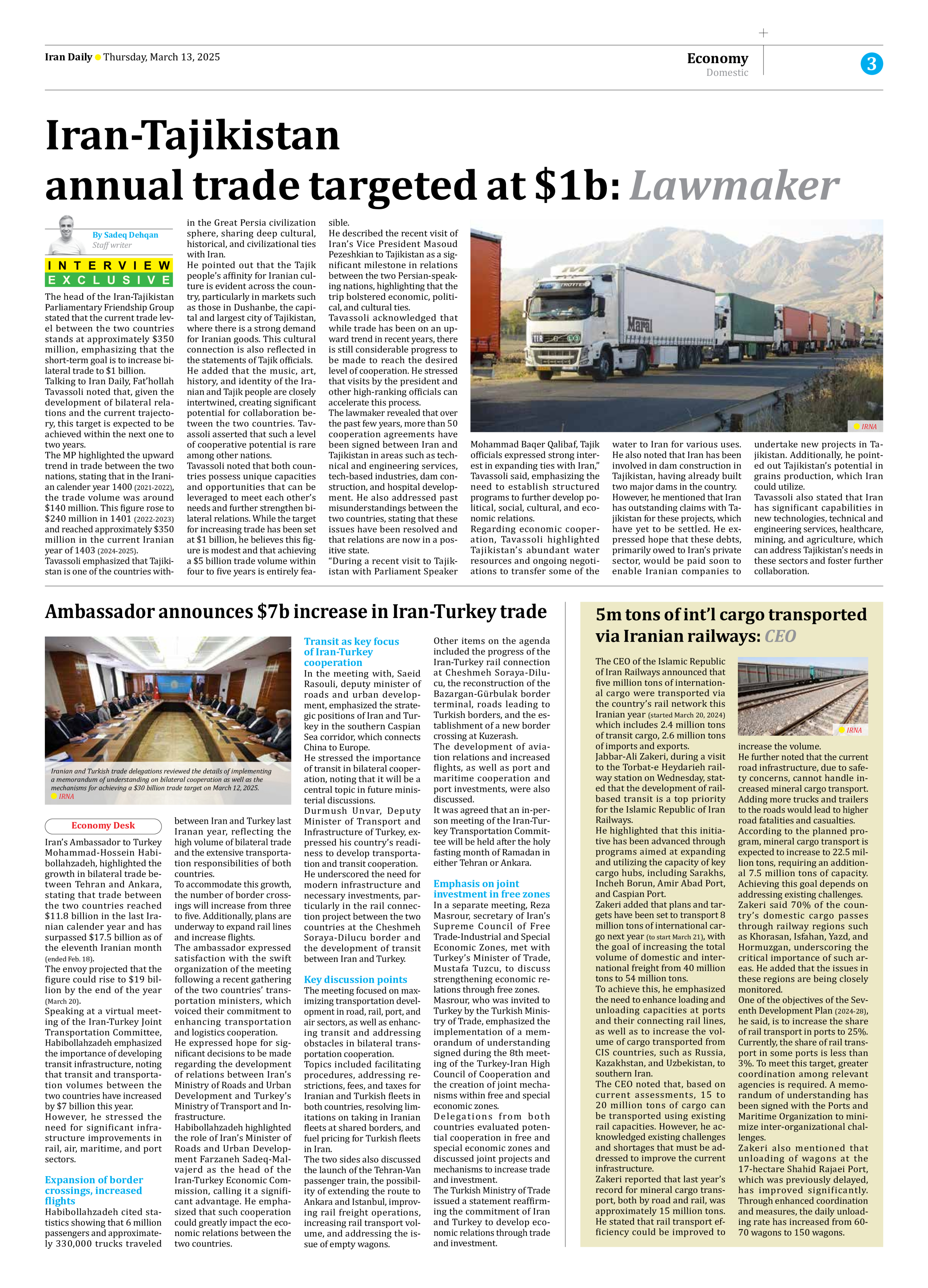
Copy in clipboard...
5m tons of int’l cargo transported via Iranian railways: CEO
Jabbar-Ali Zakeri, during a visit to the Torbat-e Heydarieh railway station on Wednesday, stated that the development of rail-based transit is a top priority for the Islamic Republic of Iran Railways.
He highlighted that this initiative has been advanced through programs aimed at expanding and utilizing the capacity of key cargo hubs, including Sarakhs, Incheh Borun, Amir Abad Port, and Caspian Port.
Zakeri added that plans and targets have been set to transport 8 million tons of international cargo next year (to start March 21), with the goal of increasing the total volume of domestic and international freight from 40 million tons to 54 million tons.
To achieve this, he emphasized the need to enhance loading and unloading capacities at ports and their connecting rail lines, as well as to increase the volume of cargo transported from CIS countries, such as Russia, Kazakhstan, and Uzbekistan, to southern Iran.
The CEO noted that, based on current assessments, 15 to 20 million tons of cargo can be transported using existing rail capacities. However, he acknowledged existing challenges and shortages that must be addressed to improve the current infrastructure.
Zakeri reported that last year’s record for mineral cargo transport, both by road and rail, was approximately 15 million tons. He stated that rail transport efficiency could be improved to increase the volume.
He further noted that the current road infrastructure, due to safety concerns, cannot handle increased mineral cargo transport. Adding more trucks and trailers to the roads would lead to higher road fatalities and casualties.
According to the planned program, mineral cargo transport is expected to increase to 22.5 million tons, requiring an additional 7.5 million tons of capacity. Achieving this goal depends on addressing existing challenges.
Zakeri said 70% of the country’s domestic cargo passes through railway regions such as Khorasan, Isfahan, Yazd, and Hormuzgan, underscoring the critical importance of such areas. He added that the issues in these regions are being closely monitored.
One of the objectives of the Seventh Development Plan (2024-28), he said, is to increase the share of rail transport in ports to 25%.
Currently, the share of rail transport in some ports is less than 3%. To meet this target, greater coordination among relevant agencies is required. A memorandum of understanding has been signed with the Ports and Maritime Organization to minimize inter-organizational challenges.
Zakeri also mentioned that unloading of wagons at the 17-hectare Shahid Rajaei Port, which was previously delayed, has improved significantly. Through enhanced coordination and measures, the daily unloading rate has increased from 60-70 wagons to 150 wagons.







